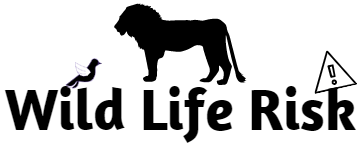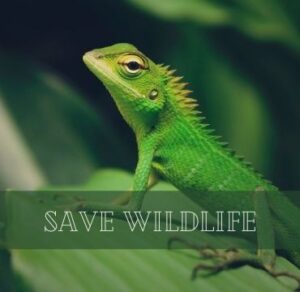Please Stop if you are Feeding Cats & Dogs on a Vegetarian Diet

Stop giving your dogs and cats a vegetarian diet or large amounts of fruit and vegetables for a long time. Why do you have to feed cats and dogs? Please share if you are a true cat and dog lover. Pet Mart’s article below will specifically analyze the issue of vegetarian diets specifically for dogs and cats.
3 Reasons Confirm that Dogs and Cats are not Vegetarian
Recently, we have received a lot of arguments about whether or not to feed cats and dogs with vegetables. How to eat with content? How long time? And especially, one opinion also affirms that dogs and cats are vegetarian and still healthy.
According to Dr. Lisa Weeth, a veterinarian dietitian says: She often doesn’t recommend a vegetarian diet for cats and dogs. A dog and cat’s nutritional problem, whether it’s meat or plant, needs a balanced supply of essential nutrients. Guaranteed for the comprehensive development of the pet. Especially in the age group from 2 to 15 months of life. This is almost impossible with a fully vegetarian diet for cats and dogs.
In this article, we will gather international knowledge, scientific documents, and consultation of the vet council at home and abroad to clarify all the above questions. If you are lazy to read the evidence, you can go straight to the conclusion at the end of the article.
First of all, we need to understand some of the axioms that have been scientifically proven in cats about Protein – Carbohydrates – Vitamins as follows:
- Cats and dogs are carnivores. Mother Nature’s instinct is to live and get energy from Protein and is a protein of animal origin. Not plants.
- Dogs and cats have very little carbohydrate (starch-sugar) requirements (2-5% of the diet). Because the cat’s digestive system lacks the enzyme amylase (amilase) to break down carbohydrates into simple sugars.
- Cats and dogs get vitamins from meat, organs and undigested foods from the organs of animals they hunt. Without vitamins, cats will instinctively eat certain plants such as grass. But will not digest) to replenish.
Are Vegetarian Dogs and Cats Enough to Eat?
If the Sen gave dogs and cats a vegetarian diet (mixed rice with vegetables) and confirmed that they live normally. Please tell that all animals in this world are “living normally” until illness and death. Fasting will lead to changes in the pH of the urinary system, which can lead to kidney stones.
Also, if there is no or too little animal protein in the kitten’s feed, it will cause a severe deficiency in Taurine. May cause blindness in cats due to decreased retinal cells. If you want to change the world, do it alone. Because humans are omnivores and cats are carnivores. Stop this unnatural crime now, Sen.
If you feed your cat too many carbohydrates, it will cause diabetes, obesity, and reduce the absorption of protein. And internal damage is caused by the cat’s digestive system is not designed to digest too many carbs. Note that potatoes are 20% carbs, sweet potatoes are 21% and pumpkins are 12%. To supplement vitamins for dogs and cats, we have food rich in vitamins and minerals such as sea fish, dried seeds, barley grass (cat grass), supplements, and possibly vegetables.

Animal and Plant Proteins are Not the Same Thing
If the pet owner is a vegan or a vegetarian and wants to turn his pet into a purely vegetarian dog, it’s understandable. So, is it good for a healthy adult dog and cat to gradually switch to a vegan diet? In some cases, it is still possible, as long as cats and dogs are provided with the right balance for each stage in their life. However, this is not as simple as you think.
A vegetarian diet for cats and dogs may provide a little protein, but that is not enough for dogs to grow. In addition, plant proteins do not have the required amount of amino acids. To meet the needs dogs need as in protein from animal meat. The veterinarian looks at the index of biological value (BV), a measurement used to determine the effectiveness of a particular protein.
Another problem with plant-based proteins is that they tend to be less digestible than animal-based proteins. So if you feed them soybeans, it will be metabolized differently than if you feed them chicken or beef. And so we need to make sure that the plant proteins are digestible and that dogs can use them safely. If not, we could make a big mistake, especially with pregnant, nursing puppies, or growing cats.
According to Dr. Susan Jeffrey, a veterinarian at Truesdell Animal Care Hospital in Madison, Wisconsin, said: Some vegan diets may lack essential amino acids like taurine and L-carnitine, which are commonplace. found in meat. Insufficient supply of these nutrients can lead to health problems such as heart disease. Lack of taurine can lead to dilated cardiomyopathy.
See more: Russian bear dog size
The Effects of Long-Term Vegetarian Diet in Dogs & Cats
If you abuse vegetables due to high amounts of vitamins and fiber and for a long time, there will be the following disadvantages:
- Causing excess vitamins: Not controlling or calculating the amount of vegetables well will lead to this situation. Also, if you use products that contain frozen and thawed vegetables, you will lose most of the water-soluble vitamins that are ineffective. Multivitamins may be more difficult to absorb than natural vitamins, but they will be more complete. Because it has been designed exclusively for dogs and cats, ensuring dosage control does not cause excess, poisoning.
- Causes excess carbohydrates: As mentioned above, boiled potatoes have 20% of carbohydrates, sweet potatoes are 21% and pumpkin is 12%. So how to add the amount of Carb does not exceed 2 – 5% of the cat’s diet is something that needs to be calculated very carefully by math. It is impossible to rely on experience as some Sen said: “I won’t die ever since”.
- Unsafe mixed vegetables: Cat foods that are mixed with vegetables often use this ingredient to sell at low prices. This leads to the use of low quality animal products such as chicken necks and chicken bones to reduce costs. Although pureed in these products, they can still contain chopped bones. Or if it is a sharp bone, it can be stuck in the throat, causing an infection. Pureed vegetables are an ideal environment for harmful bacteria to grow. That is why fresh foods with vegetables must be frozen.
Furthermore, not all vegetarian dog food is created equal. To ensure the dog’s diet. Stringent nutritional quality control standards should be met. See the label or call the company. There should be a statement on the packaging of dog food products that this food contains adequate nutrition. Or at least, it must comply with the requirements of the AAFCO organization. In addition, dog food products must state the appropriate age for use.
Read more: Best Dry Cat Food With High Protein
In Which Case for Cats & Dogs to be Vegetarian?
Dr. Joe Bartges, a veterinarian nutritionist and professor of Nutrition Medicine at the University of Georgia, Athens, says: A vegan diet can be a sensible choice when your dog or cat is in need. meat proteins. Examples include kidney disease, urate bladder stones and inflammatory bowel disease (IBD).
Some cats and dogs are more sensitive to animal protein than to plant proteins. So switch them to vegan dog and cat food. May be of benefit to IBD bowel disease.
That doesn’t mean it’s better to be vegetarian for all IBD bowel diseases in dogs and cats. With IBD, it really depends on how responsive the individual is. So if dogs and cats are allergic to food. We need to keep track of where the protein components come from. Whether it is of plant or animal origin.
Note When Feeding Cats and Dogs Vegetarian
If you have to give your dog and cat a vegetarian diet after consulting with your veterinarian, there are a few things to keep in mind:
First, plant proteins tend to make the urine more alkaline. If you switch completely to a fully vegetarian diet. And it’s a moderate protein and doesn’t add any uric acid. It can put your dog at risk for struvite stones.
Visible changes to the dog’s coat. It can tell us that dogs are not absorbing enough essential fatty acids. Observe that the dog’s coat is shiny or has become dull and dirty? Does the dog have scaly skin? People often think that the above symptoms have nothing to do with diet changes because it takes two to three months to appear.
If you notice any changes, bring your dog to see your veterinarian. Also, at the dog’s annual check-up. The doctor will do blood tests and analyze the urine. To ensure food is digested and absorbed in the necessary way.
Read more: Tips on What to Feed Your Dog







